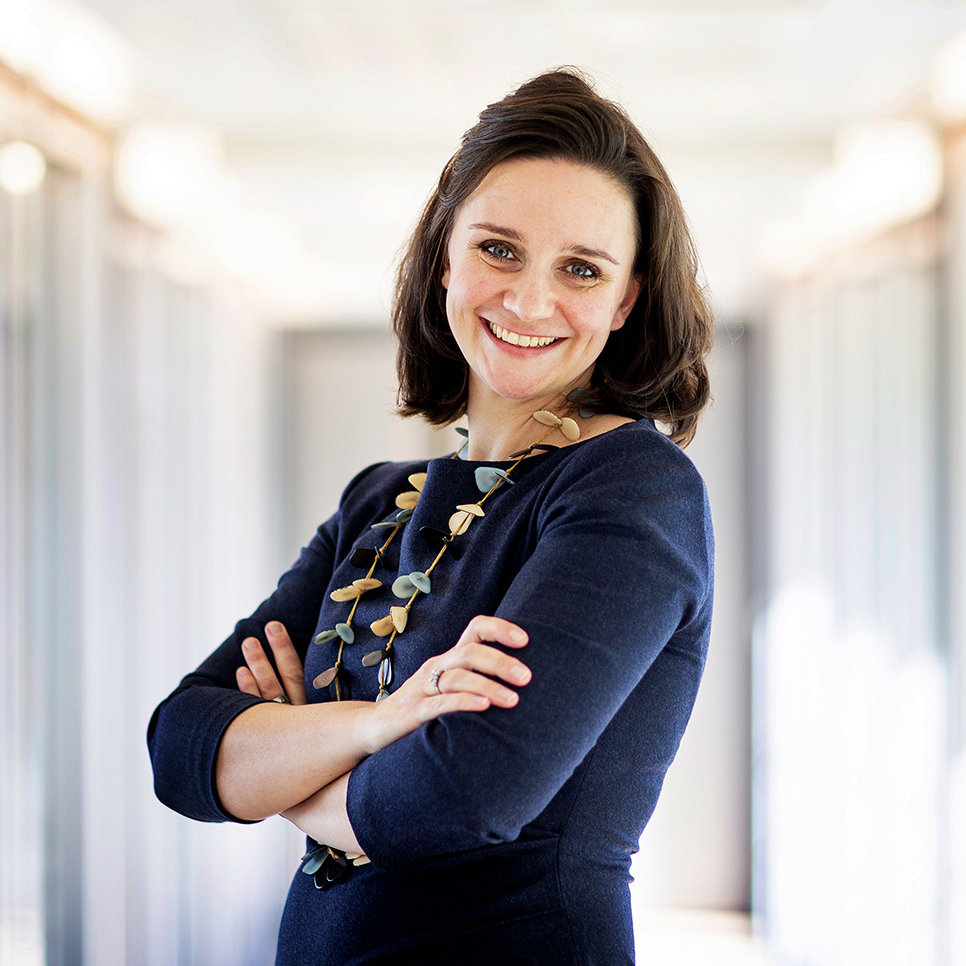Vidi for Jeannette Heiligers and her space duster on sunlight
Assistant Professor Astrodynamics & Space Missions Jeannette Heiligers is one of two AE researchers who’ve been granted a Vidi grant by the Dutch Research Council NWO. Her proposal – called SWEEP - investigates the idea of a “shuttlebus” to clean up space debris. It picks up debris objects and transports them to a place where they no longer pose a threat to satellites. It does so in a sustainable manner using a wafer-thin mirror to ‘sail’ on the stream of solar photons.
SWEEP: riding on sunlight to get rid of space debris
Space is filled with garbage. Operational satellites that are vital to our everyday lives share their orbits with discarded rocket stages, defunct satellites, and spacecraft fragments: space debris. Over 20,000 debris objects larger than 10 cm float around Earth. An impact from such an object may destroy a satellite, or worse, threaten human spaceflight. Space needs to be cleaned up.
In her research proposal SWEEP Heiligers launches a special way to actively remove space debris: she uses the propulsion capabilities of solar sailing. A solar sail lets a satellite ride on sunlight the way sailboats ride on the wind. Heiligers and her team will explore how to efficiently and effectively use the sail to move to a piece of debris, deorbit it, travel to the next object, and repeat the cycle.
The challenging first step towards fuel free space debris removal
One of the challenges is that until now the transfer capabilities of solar sailing have predominantly been investigated in interplanetary space. To determine whether they’re useful as a propulsion tool for clearing debris around Earth more research is needed. At the moment for instance there are no high-fidelity solar-sail Earth-bound dynamical models. Also, a complex optimisation problem needs to be solved to determine how the ‘space duster’ can move efficiently between debris objects and an answer needs to be found to a never-before solved travelling salesman problem to determine which pieces of debris to remove in which order.
The Vidi grant allows Heiligers and her team to derive the dynamical models, be the first to solve the optimisation problem and use machine learning techniques to solve the travelling salesman problem. For this they will use flight-data from NASA’s ACS3 solar-sail mission. The research data will be used within a large consortium of space agencies (ESA, NASA, DLR), companies (ISISpace), and key academic players (Embry-Riddle, Polimi, among others) to define technology development requirements, propose a technology demonstration mission and take the first step towards fuel-free space debris removal.
The NWO Talent Programme
In total NWO awards eight Vidi grants to researchers at TU Delft. The Vidi is aimed at experienced researchers who have carried out successful research for several years after obtaining their PhD. Together with the Veni and Vici grants, Vidi is part of the NWO Talent Programme. Read more about the talent programme and the Vidi grants on the the NWO website.
More information
Dr. Jeannette Heiligers, Assistant Professor Astrodynamics & Space Missions. Contact.
Read the TU Delft press release about all the winners at TU Delft.

![[Translate to English:] [Translate to English:]](https://filelist.tudelft.nl/_processed_/e/7/csm_sweep%20header_dc89221ba5.png)